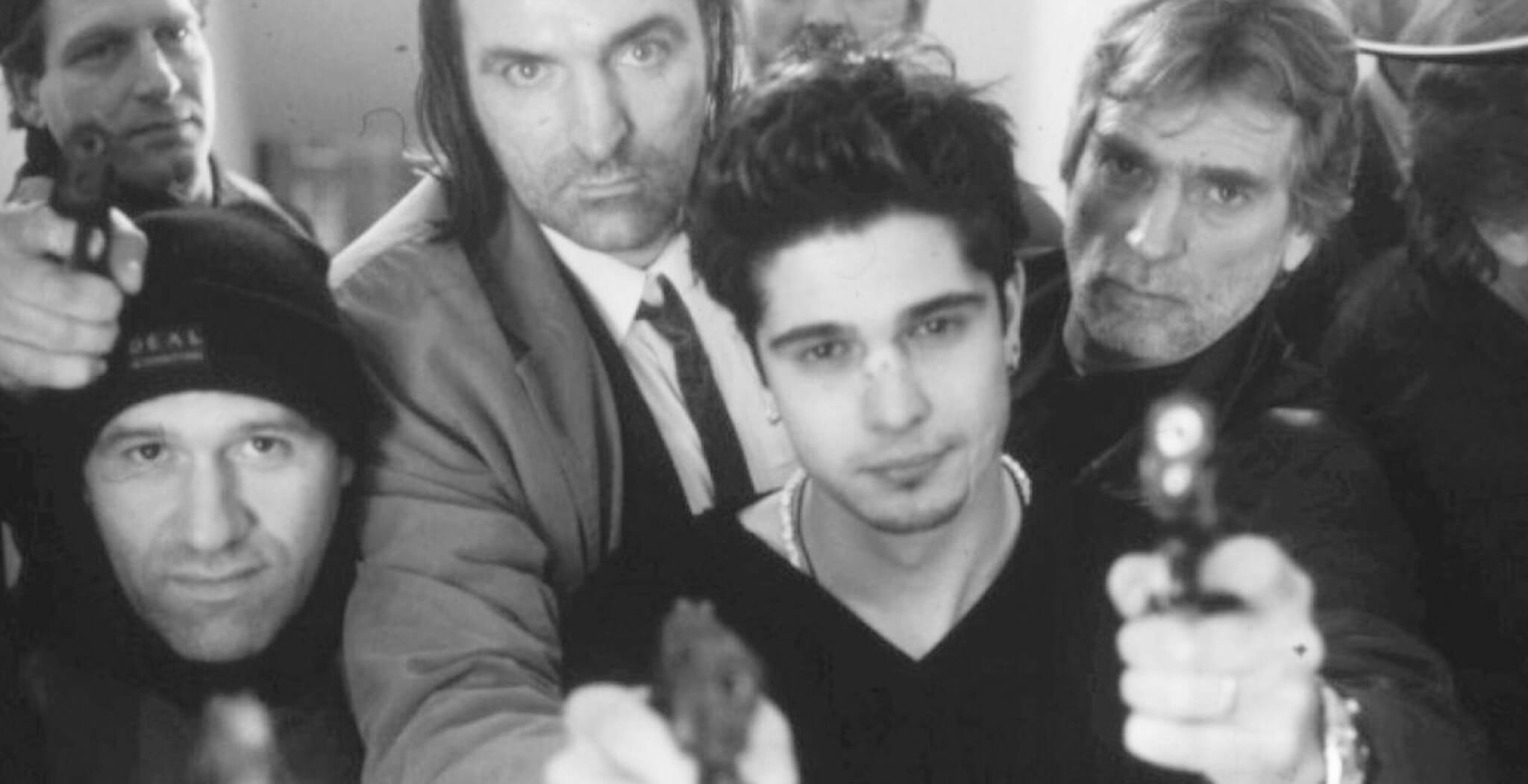German Migrant Cinema Broke the Barriers for Rap Bio Pics
Last week marked the highly anticipated world premiere of Rheingold, the latest cinematic masterpiece from renowned German filmmaker Fatih Akin. With 22 directorial credits under his belt, including the critically acclaimed Gegen die Wand (Head-On, 2004) and the Golden Globe-winning Aus dem Nichts (In the Fade, 2017), Rheingold solidifies Akin’s illustrious career.
The film delves into the captivating biography of Xatar, a German-Iranian rap sensation. Xatar, known for his chart-topping music and ownership of the influential label empire Alles oder Nix Records, gained notoriety for his involvement in a daring heist of a German gold transport in 2009. Although he was apprehended, the gold was never recovered.
Xatar’s life brims with stories worthy of multiple movies, and under the expert direction of Fatih Akin, viewers can expect a captivating narrative. His biography serves as a testament to German success and offers a profound exploration of migration, a subject that has played a significant role in German cinema since Rainer Werner Fassbinder’s groundbreaking Angst essen Seele auf (Ali: Fear eats the Soul) in 1974. This impactful film, starring Brigitte Mira and El Hedi ben Salem, has been hailed as one of the “high-water marks of New German Cinema,” and even recommended by Martin Scorsese.
However, it took time for stories like these to be told from an authentic migrant perspective, rather than solely from a German viewpoint. In the 1990s and early 2000s, German-migrant cinema found a new and enthusiastic audience within the emerging German hip-hop scene. Magazines like Juice featured reviews of movies such as Kurz und Schmerzlos and Kanak Attack, while their accompanying soundtracks showcased talented German rap artists, some of whom even made their acting debut in these films.
As we celebrate the release of Rheingold, we shine a spotlight on some lesser-known gems of German-migrant cinema that resonated deeply with the hip-hop community.
Geschwister / Kardesler, released in 1997, is a film by Thomas Arslan, the son of a Turkish father and German mother who grew up in Essen, Germany, and Turkey. Set in Berlin-Kreuzberg, the story revolves around siblings Erol, Ahmed, and Leyla. While Erol is drawn to embrace a traditional life within the Turkish community, his younger siblings yearn to break free from their conservative environment. Kardesler / Geschwister offers an authentic portrayal of 1990s Kreuzberg and the experiences of young migrants residing there. Interestingly, a young Savas Yurderi, who later became Kool Savas, a trailblazing figure in German rap and one of the country’s biggest music stars, plays the character Ahmed.
Arslan also directed the film Dealer, which follows the journey of Can (Tamer Yigit) as he strives to escape his criminal surroundings and provide a better life for his family. This film features brief appearances by underground rappers from Kool Savas’ former band M.O.R. (Masters of Rap). Arslan concluded his so-called Berlin trilogy in 2001 with Der schöne Tag (The Beautiful Day).
Another notable film, Kanak Attack, emerged from the German-Turkish author Feridun Zaimoglu. In 1997, Zaimoglu’s book Abschaum – Die Geschichte von Ertan Ongun (Scum – The Story of Ertan Ongun) received critical acclaim, leading to its adaptation into a film directed by Lars Becker in 2000. Inspired by a real-life encounter, Zaimoglu’s story centers around a young petty criminal from Kiel who shares his life story with the author after reading his earlier work, Kanak Sprak – 24 Misstöne vom Rande der Gesellschaft (Kanak Language – 24 Discordant Notes from the Fringe of Society). Luk Piyes portrays Ertan Ongun, while Tyron Ricketts, a German TV personality, rap star, and actor, plays his friend Mehdi Jamal. Ricketts would go on to establish Panthertainment, a production company dedicated to sharing stories of people of color. Sekou Neblett, formerly known as Sekou the Ambassador and recognized for his collaborations with Freundeskreis, also makes a cameo appearance, alongside the esteemed German-Turkish movie legend Hilmi Sözer.
Set against the backdrop of the criminal scene in the German harbor city of Kiel, Abschaum’s soundtrack features tracks from artists like Mellowbag (Tyron Rickett’s band), Spezializtzt, Absolute Beginner, Patrice, Dynamite Deluxe, and even includes dialogue spoken by Ertan Ongun himself.
In 1998, Fatih Akin’s crime drama Kurz und Schmerzlos captivated audiences, and its accompanying soundtrack, aptly named Kurz und Schmerzlos: Hip Hop inspiriert von Fatih Akins Spielfilm, became a testament to the profound connection between German rap and migrant cinema. The movie tells the tale of three friends—Turkish Gabriel, Serbian Bobby, and Greek Bobby—living in Hamburg. Gabriel, recently released from prison, strives to turn his life around, while his two friends have different plans. Their friendship is tested not only by the perils of crime but also by matters of the heart. The soundtrack features prominent German rap acts from Akin’s hometown of Hamburg, such as Fünf Sterne Deluxe, Eins, Zwo, and Dynamite Deluxe, cementing its place in the record collections of hip-hop enthusiasts.

The director finished his so-called Berlin trilogy in 2001 with Der schöne Tag (The beautiful Day).
Kanak Attack
German-Turkish author Feridun Zaimoglu released Abschaum – Die Geschichte von Ertan Ongun (Scum – The Story of Ertan Ongun) in 1997. The book was a successs and a movie adaption followed in 2000 directed by Lars Becker.
The book’s story is rooted in real life. After releasing his first book Kanak Sprak – 24 Misstöne vom Rande der Gesellschaft (Kanak Language – 24 Jaring Notes from the Fringe of Society) , author Zaimoglu met a young petty criminal from Kiel who after reading his first book asked him to listen to his life story. That story became Abschaum.
Ertan Ongun was played by German-Turkish actor Luk Piyes and his friend Mehdi Jamal is played by Tyron Ricketts, the German TV personality, rap star and – of course – actor who would go on to start Panthertainment, a production company focussing on telling POC stories. Sekou Neblett, formerly known as Sekou the Ambassador and for his works with Freundeskreis also has a cameo, such as German-Turkish movie legend Hilmi Sözer.
The story’s backdrop is the petty criminal scene of German harbor city Kiel and the soundtrack is spiked with tracks by artists like Mellowbag (Tyron Rickett’s band), Spezializtzt, Absolute Beginner, Patrice, Dynamite Deluxe and spoken dialog by Ertan Ongun.
Kurz und Schmerzlos
The soundtrack released to accompany Fatih Akin’s 1998 crime drama Kurz und Schmerzlos is actually called Kurz und Schmerzlos: Hip Hop inspiriert von Fatih Akins Spielfilm.
Does it get more Hip Hop than that?
The movie tells the story of three friends – Turkish Gabriel, Serbian Bobby and Greek Bobby – living in Hamburg. Gabriel just got released from prison and is planing to turn his life around, while his two friends are having other plans. Their friendship is not only tested by the dangers of crime, but also by love.
The soundtrack features several German rap acts from Akin’s hometown Hamburg such as Fünf Sterne Deluxe, Eins, Zwo and Dynamite Deluxe and became a mainstay in hip hop head’s record crates.
The question arises: did migrant cinema bolster German rap, or was it the other way around? This symbiotic relationship speaks to a genre firmly rooted in German migrant history. Moreover, it is a genre that thrives on authenticity—something migrant directors and creatives possess in abundance. Their collaboration was not driven by commercial motives but by a shared sense of purpose.
Rap provided a voice to those previously unheard, just as the directors mentioned earlier did. They introduced German audiences to stories that existed outside the German mainstream but remained profoundly German at their core—stories as German as the biography of Iranian-born Xatar or the stories of our German readers, even if their roots lie elsewhere.



























